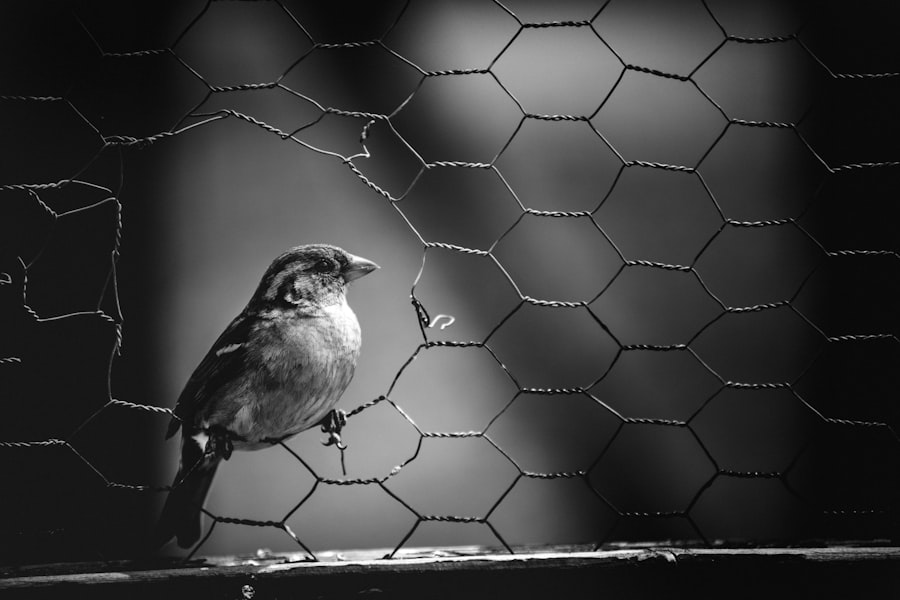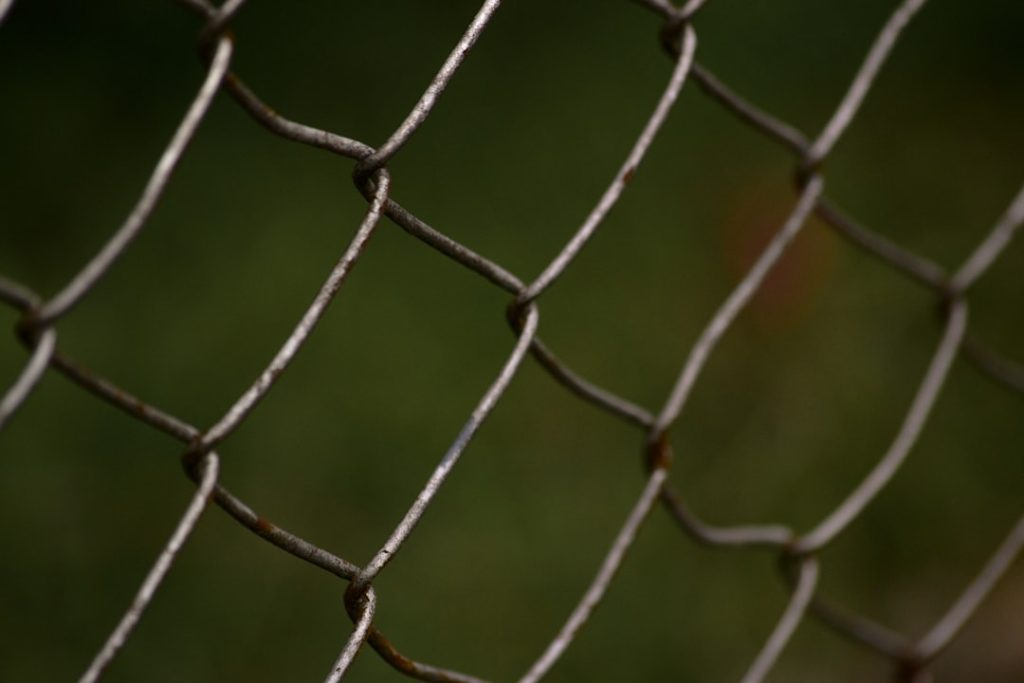Chickens are social animals with innate foraging and exploratory behaviors. They exhibit curiosity by pecking at various objects and surfaces in their environment. Understanding these natural instincts is essential for effective chicken management and deterrence from undesired areas.
Recognizing their behavioral patterns allows for the implementation of more successful strategies to restrict their access to specific spaces. Chickens also demonstrate habitual behavior, frequently returning to familiar locations. This tendency can be leveraged when applying deterrents and training methods.
A thorough comprehension of chicken behavior enables the development of a comprehensive management approach, facilitating a more balanced coexistence between humans and these domesticated birds.
Table of Contents
Key Takeaways
- Chickens are naturally curious and will explore their surroundings, so understanding their behavior is key to effectively deterring them from certain areas.
- Creating physical barriers such as fences, netting, or chicken wire can help keep chickens out of unwanted areas.
- Using natural repellents like citrus peels, garlic, or hot pepper can deter chickens from specific areas without harming them.
- Implementing deterrents like motion-activated sprinklers or noise-making devices can startle chickens and discourage them from entering certain areas.
- Providing alternative distractions such as designated foraging areas or hanging shiny objects can redirect chickens’ attention away from off-limits areas.
- Training chickens with positive reinforcement, such as treats for staying in designated areas, can help modify their behavior over time.
- Seeking professional help from a veterinarian or animal behaviorist may be necessary for persistent chicken behavior issues.
Creating Physical Barriers
Traditional Fencing and Structures
One effective way to deter chickens from accessing certain areas is by creating physical barriers. This can be achieved through the use of fencing, netting, or other structures that prevent chickens from entering specific spaces. When implementing physical barriers, it is important to ensure that they are secure and properly installed to prevent chickens from finding ways to bypass them.
Alternative Barriers: Chicken Wire and Mesh
In addition to traditional fencing, the use of chicken wire or mesh can also be effective in creating barriers that prevent chickens from accessing gardens, flower beds, or other sensitive areas.
Effective Management without Harm
By creating physical barriers, we can effectively manage the presence of chickens in specific spaces without causing harm to the animals themselves.
Using Natural Repellents

Another approach to deterring chickens from unwanted areas is by using natural repellents. This can include the use of strong-smelling substances such as citrus peels, garlic, or vinegar, which are known to be unappealing to chickens. By strategically placing these natural repellents in areas where chickens are not welcome, we can discourage them from accessing these spaces without causing any harm to the animals.
In addition to strong-smelling substances, the use of motion-activated sprinklers can also be an effective natural repellent for deterring chickens. These devices release a burst of water when they detect motion, which can startle and discourage chickens from entering specific areas. By using natural repellents, we can effectively manage the presence of chickens in unwanted spaces while maintaining a humane approach to animal control.
Implementing Deterrents
In addition to physical barriers and natural repellents, there are other deterrents that can be implemented to discourage chickens from accessing specific areas. One effective deterrent is the use of noise-making devices such as wind chimes or bells, which can startle and discourage chickens from entering unwanted spaces. Additionally, the use of reflective surfaces such as aluminum foil or shiny objects can also be effective in deterring chickens from specific areas.
Another effective deterrent is the use of predator decoys such as fake owls or hawks, which can create the illusion of danger and discourage chickens from entering certain spaces. By implementing these deterrents, we can effectively manage the presence of chickens in unwanted areas without causing any harm to the animals themselves.
Providing Alternative Distractions
One approach to managing the presence of chickens in unwanted areas is by providing alternative distractions. This can include the use of designated feeding areas or the placement of chicken-friendly plants or objects in specific spaces. By providing alternative distractions, we can redirect the attention of chickens away from sensitive areas and towards more suitable locations.
In addition to providing alternative distractions, the use of chicken toys or enrichment activities can also be effective in keeping chickens occupied and engaged in specific areas. By providing alternative distractions, we can effectively manage the presence of chickens in unwanted spaces while promoting their natural behaviors and instincts.
Training Chickens with Positive Reinforcement

Encouraging Desired Behaviors
One approach to managing the behavior of chickens is by training them with positive reinforcement. This can include the use of treats or rewards to encourage desired behaviors such as staying within designated areas or avoiding specific spaces.
Effective Training Techniques
In addition to positive reinforcement, the use of clicker training or other training techniques can also be effective in shaping the behavior of chickens.
Promoting Harmonious Coexistence
By training chickens with positive reinforcement, we can effectively manage their presence in specific areas while promoting a harmonious coexistence between humans and animals. This approach allows us to create an environment where both humans and chickens can thrive together.
Seeking Professional Help
In some cases, managing the behavior of chickens may require professional assistance. This can include consulting with animal behaviorists or seeking guidance from experienced poultry farmers who have expertise in managing chicken behavior. By seeking professional help, we can gain valuable insights and guidance on how to effectively manage the presence of chickens in specific areas while promoting their well-being and welfare.
Additionally, professional help may also be necessary in cases where the behavior of chickens poses a threat to human safety or property. In these instances, it is important to seek assistance from professionals who have experience in managing animal behavior and implementing effective deterrents. By seeking professional help, we can ensure that the presence of chickens is managed in a manner that is safe and humane for both humans and animals alike.
In conclusion, understanding the behavior of chickens is crucial in effectively managing their presence in specific areas. By implementing physical barriers, natural repellents, deterrents, and alternative distractions, we can effectively deter chickens from accessing unwanted spaces while promoting their well-being and welfare. Additionally, training chickens with positive reinforcement and seeking professional help when necessary are important steps in managing their behavior in a manner that is safe and humane for both humans and animals alike.
By taking a comprehensive approach to managing chicken behavior, we can promote a harmonious coexistence between humans and animals while ensuring that our needs and preferences are met.
If you’re looking for ways to keep chickens out of your plants, you may also be interested in learning about whether guinea fowl can live with chickens. Check out this article to find out more about keeping different types of poultry together.
FAQs
What are some effective methods for keeping chickens out of plants?
Some effective methods for keeping chickens out of plants include using physical barriers such as fences or netting, creating designated areas for the chickens to roam, using natural deterrents such as citrus peels or cayenne pepper, and providing alternative sources of entertainment and food for the chickens.
Why is it important to keep chickens out of plants?
It is important to keep chickens out of plants because they can cause damage to the plants by scratching, pecking, or eating them. Additionally, some plants may be toxic to chickens, so it is important to prevent them from accessing these plants.
What are some plants that are toxic to chickens?
Some plants that are toxic to chickens include azaleas, rhododendrons, foxglove, nightshade, and lilies. It is important to research and identify any toxic plants in your garden and take measures to keep chickens away from them.
How can I train my chickens to stay out of plants?
You can train your chickens to stay out of plants by using positive reinforcement, such as providing treats or rewards when they stay away from the plants, and negative reinforcement, such as using a gentle spray of water when they approach the plants. Consistency and patience are key when training chickens.
Are there any plants that can help repel chickens?
Yes, there are some plants that can help repel chickens, such as marigolds, lavender, and rosemary. These plants have strong scents that chickens may find unpleasant, and planting them around your garden can help deter chickens from entering certain areas.
Meet Walter, the feathered-friend fanatic of Florida! Nestled in the sunshine state, Walter struts through life with his feathered companions, clucking his way to happiness. With a coop that’s fancier than a five-star hotel, he’s the Don Juan of the chicken world. When he’s not teaching his hens to do the cha-cha, you’ll find him in a heated debate with his prized rooster, Sir Clucks-a-Lot. Walter’s poultry passion is no yolk; he’s the sunny-side-up guy you never knew you needed in your flock of friends!







